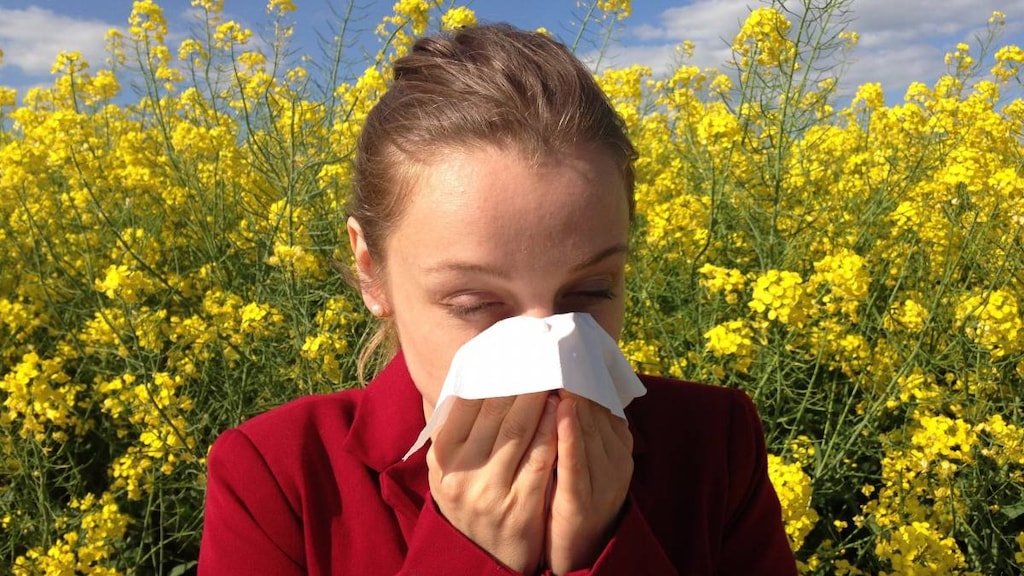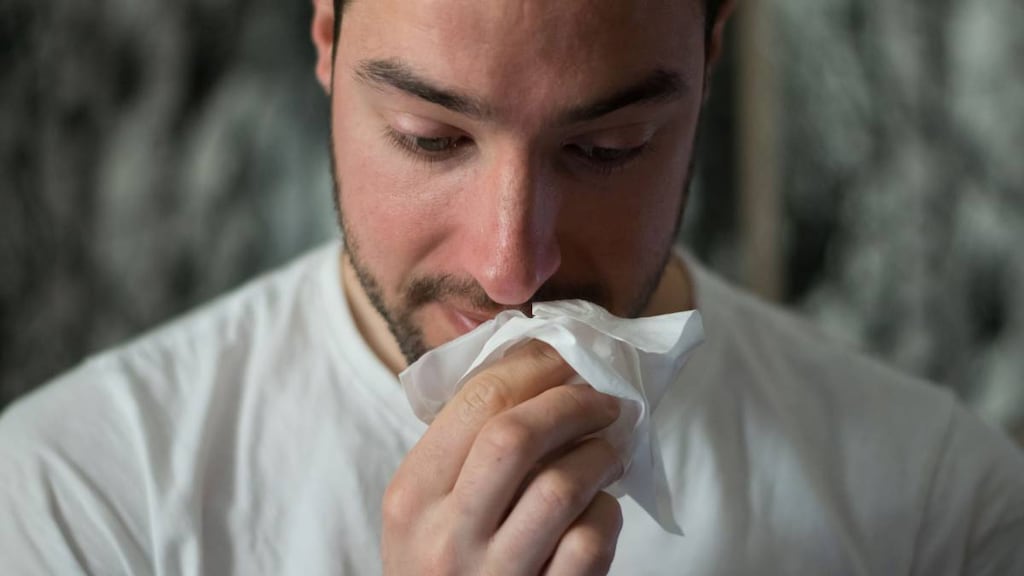Can You Take Allergy Medications While Pregnant?

When you’re pregnant, you want to safeguard not only your health but also the health of your baby. So, if you wrestle with allergies, you may be wondering about the safety of your allergy medications. Here’s what you need to know so that you and your doctor can create an effective allergy management plan for you.
How pregnancy can affect allergies
If you’ve already noticed that you’re more bothered by allergies, you’re not alone. Studies suggest that allergy symptoms increase for 10 to 30 percent of pregnant women. But allergies are also unpredictable. Some women find no change while others say they’re less affected when pregnant, and still others develop allergies for the first time.
Though having allergies can be difficult for you, the allergies themselves don’t seem to affect your baby directly. What you take for them, however, could pass to him or her in the womb. The problem is that it's not entirely clear which drugs do this, making it hard to know what’s truly safe, according to research in the Journal of Obstetrics and Gynaecology. Also, few studies have looked at the best ways to treat allergies in pregnant women.
What can pregnant women take for allergies?
Allergies like allergic rhinitis, or what’s commonly called hay fever, bring bothersome symptoms, like a stuffy or runny nose, sneezing and itching. If symptoms are severe, they can affect eating, sleeping or emotional well-being — all important for a healthy pregnancy. They can also lay the groundwork for infected sinuses.
The reason for concern about taking allergy medication to relieve these symptoms during pregnancy is that information on which drugs cross the placenta is sketchy, as is detail on how they might negatively affect the baby. So, with the exception of treating life-threatening anaphylaxis, it’s important to weigh all benefits against any risks to your baby.
In fact, many experts say that it makes sense to double your efforts to avoid allergens and try non-drug steps to ease symptoms (more on both below) rather than rely on medications. The American College of Obstetricians and Gynecologists also advises women to talk to their doctor before taking any medication, even over-the-counter drugs. That being said, here’s how to take stock of your medicine cabinet.
- Antihistamines
Antihistamines are the first line treatment for many symptoms caused by seasonal and year-round allergies. According to a report in the journal American Family Physician, there are safe antihistamines to use judiciously when pregnant. These include so-called “first-generation antihistamines,” early formulas like chlorpheniramine (ChlorTrimeton) and diphenhydramine (Benadryl). Even though diphenhydramine is the one drug in this group known to cross the placenta, there doesn’t seem to be a risk to the baby and, for mom, the main downside is that it will cause drowsiness.
Newer “second-generation” antihistamines that are effective without causing drowsiness and that are considered safe for baby are loratadine (Claritin) and cetirizine (Zyrtec). But it’s important to know that this guideline is based on limited patient studies. There’s some concern over fexofenadine (Allegra) because it was associated with early pregnancy loss in animal studies. Even though fexofenadine hasn’t been studied in women, it’s better to avoid it when pregnant.
- Decongestants
According to the American Family Physician report, there's not enough information to say that pills and liquid decongestants are as safe as antihistamines during pregnancy. A few studies done on pseudoephedrine (Sudafed, Sudafed PE and other brands) since 2000 have found an association between the drug and minor birth defects, including some in the abdominal wall, enough to raise concern even if the research isn’t completely conclusive.
Using pseudoephedrine, especially in the first trimester, when baby is most vulnerable, should only be a last resort in severe cases, like when your allergy symptoms are affecting your ability to sleep and breathe, according to the American College of Allergy, Asthma & Immunology (ACAAI). It also concluded that two other decongestants, phenylephrine and phenylpropanolamine, are even less advisable than pseudoephedrine, according to the information available. Avoid them along with antihistamine-decongestant combination formulations.
Another concern is that, because all these medicines temporarily narrow blood vessels, they can worsen high blood pressure in a pregnant woman.
Using a nasal spray decongestant with oxymetazoline (Afrin, Neo-Synephrine Long-Acting and others) appears to be safe, according to the ACAAI, but all over-the-counter (OTC) nasal sprays can cause rebound congestion and actually worsen your condition. Because of this, they should be used for no more than two or three days in a row.
- Corticosteroids
A corticosteroid-based nasal spray might be an option if your symptoms are severe, and it may reduce your need for oral medications. According to the ACAAI, based on the limited information available, budesonide (Rhinocort) is the best choice. But if you were using another formula, like Nasonex or Flonase, before getting pregnant and it was effective, you could continue with it, but it's a good idea to talk with your doctor about all over-the-counter medications you are taking while pregnant.
For every medication: Take the time to read the medication labels. Some allergy medications labeled for cough and cold symptoms contain alcohol, which you want to avoid when pregnant. Also, stay away from multi-symptom formulas that contain additional medications you might not need.
Relief without medication
- What’s safe:
Saline nasal sprays are effective OTC alternatives for treating nasal congestion, according to the American Family Physician.
Another option you might not have considered is a sterile saline solution nasal rinse. This can be a daily ritual, especially after you’ve been outside and breathing in pollen. According to a study published in International Archives of Allergy and Immunology, using a saline solution three times a day during the pollen season eased symptoms and lessened the need for daily antihistamines among a small group of pregnant women.
The American Academy of Allergy, Asthma & Immunology suggests this saline rinse recipe: Mix 3 teaspoons of pickling salt (that’s salt free of iodine, anti-caking agents and preservatives) with 1 teaspoon of baking soda in a small airtight container. To make the actual solution, dissolve 1 teaspoon of the mix in 8 ounces of sterile (distilled or boiled) water. Note that you can use less mix if you feel any burning or stinging.
To use, draw about half the solution into a soft bulb syringe (an infant size works well). Tilt your head down over a sink and rotate it to the left. Place the tip of the bulb in your right nostril and gently squeeze the bulb to release the solution (breathe through your mouth). Adjust your head as needed to keep the solution from going down your throat or into your ears. On its own, the solution should flow through to and come out of your left nostril. Rotate your head and repeat with the rest of the solution in your left nostril. Afterward, blow your nose very gently to remove any remaining liquid.
You can also use a neti pot, available at drugstores and health stores, instead of the nasal bulb to place the solution on your nostrils. No matter what device you choose, always use a sterile saline solution — never water straight from the tap — and after every use always carefully clean it with warm water and let it air dry, according to the Food and Drug Administration.
If sleep is elusive because of nasal discomfort, try wearing an OTC nasal strip designed to keep your nasal passages open while you sleep. Elevating your head slightly (which also helps if you’re experiencing heartburn) should make it easier for your sinuses to drain.
- What’s not:
Because herbal remedies haven’t been studied sufficiently. It’s not clear which ones, if any, are safe to use when you’re pregnant. Talk to your doctor before trying any supplements.
What about immunotherapy?
If you've been getting these shots, it should be safe to continue them during pregnancy, as long as you're not experiencing any negative side effects. But, if not, wait until after baby arrives to start it. That's because it’s hard to tell how you might react to the shots.
According to a report in Allergy, Asthma & Clinical Immunology, the same guidelines apply to sublingual immunotherapy (SLIT) which involves taking tablets that dissolve under the tongue.
Lifestyle steps that make a difference
Since avoiding exposure to allergens is always better than trying to treat the symptoms they cause, follow these tips as much as possible:
Reduce exposure to allergens outdoors
When the pollen count is high, limit your time outdoors, especially on windy days. If you’re used to exercising outdoors, try classes at a gym or follow one on your computer. Being outdoors in the afternoon is often less of a problem than in the morning, when pollen counts are higher. Wearing sunglasses can protect your eyes and a pollen mask can shield your nose and mouth.
Reduce exposure to allergens indoors
Keep pollen out by keeping windows closed. Use air conditioning, not a window fan that draws pollen inside.
Clean in a way that traps and removes allergens. A vacuum with a HEPA filter will capture very tiny particles. Damp dusting and damp mopping traps dust rather than spreading it around.
Encase pillows and mattresses in zippered cases to protect them from dust mites and other allergens. Wash the coverings in hot water — 130 degrees or higher — every week, along with sheets and pillowcases. Never hang linens and clothes outside to dry, where they could be a magnet for pollen traveling in a breeze.
If pet dander is a problem, be sure to keep your pets out of the bedroom. Close the air vents in your bedroom if you have forced-air or central heating or cooling so that particles can’t travel through your house into your bedroom.
To limit exposure to mold, it helps to keep the humidity in your home between 30 and 50 percent. You might need a dehumidifier in damp areas, like the basement. On the other hand, if dry air in your home is worsening nose congestion or dryness, use a portable humidifier where you sit and sleep.
The bottom line
Allergy medications haven’t been well studied on pregnant women so it's advisable to use lifestyle habits to avoid triggers and to rely on home remedies like nasal rinses and strips to clear congestion. When symptoms are severe and medication is a must, antihistamines are safer than decongestants. But always talk to your doctor before taking any allergy drug, even OTC brands.
Article references
- Cleveland Clinic, 5 Killer Allergy Busters That Are Safe for Baby https://health.clevelandclinic.org/pregnant-5-killer-allergy-busters-that-are-safe-for-baby/
- Journal of Obstetrics and Gynaecology, “Safety of cetirizine in pregnancy” (2018) https://www.tandfonline.com/doi/full/10.1080/01443615.2018.1441271
- American College of Obstetricians and Gynecologists, Reducing Risks of Birth Defects https://www.acog.org/Patients/FAQs/Reducing-Risks-of-Birth-Defects?IsMobileSet=false
- American Family Physician, Over-the-Counter Medications in Pregnancy (2014) https://www.aafp.org/afp/2014/1015/p548.html#afp20141015p548-t3
- Organization of Teratology Information Specialists, Choosing the Best Way to Stifle Seasonal Allergies During Pregnancy https://mothertobaby.org/baby-blog/ah-choosing-the-best-way-to-stifle-seasonal-allergies-during-pregnancy/
- International Archives of Allergy and Immunology, “Nasal lavage in pregnant women with seasonal allergic rhinitis: a randomized study.” (2010) https://www.ncbi.nlm.nih.gov/pubmed/19752567
- American College of Allergy, Asthma & Immunology, Allergic Rhinitis https://acaai.org/allergies/types/hay-fever-rhinitis
- American College of Allergy, Asthma & Immunology, Pregnancy and Allergies https://acaai.org/allergies/who-has-allergies-and-why/pregnancy-and-allergies
- American Academy of Allergy, Asthma & Immunology, Saline Sinus Rinse recipe https://www.aaaai.org/conditions-and-treatments/library/allergy-library/saline-sinus-rinse-recipe
- Food & Drug Administration, Is Rinsing Your Sinuses with Neti Pots Safe? https://www.fda.gov/consumers/consumer-updates/rinsing-your-sinuses-neti-pots-safe
- Allergy, Asthma & Clinical Immunology: “Allergen-Specific Immunotherapy” (2018) https://www.ncbi.nlm.nih.gov/pmc/articles/PMC6157282/?report=classic
- Up To Date, Recognition and Management of Allergic Disease During Pregnancy https://www.uptodate.com/contents/recognition-and-management-of-allergic-disease-during-pregnancy




